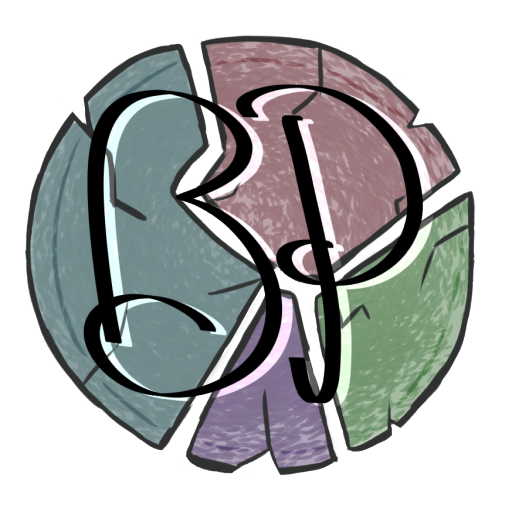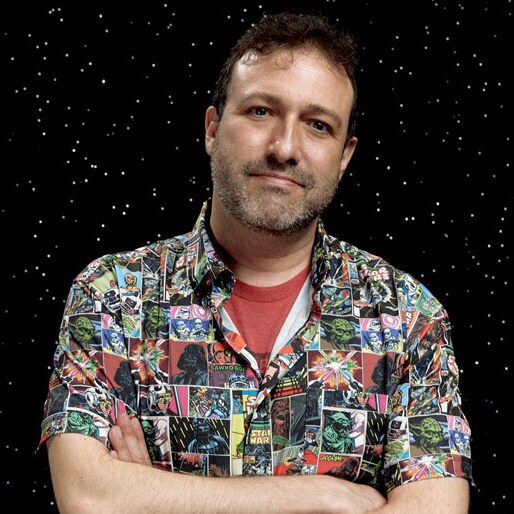(This is a continuation of Jason Holtzman’s interview with Ethan Sacks)
Discussing Archetypes
Jason Holtzman (JH): Let’s take a dive into something more fun and speculative based on some of your previous work — the “grizzled old man” archetype. You’ve written fan favorite series such as Old Man Hawkeye and Old Man Quill which are somewhat part of a Marvel tradition, following the success of Old Man Logan. However, it’s far from just Marvel telling tales about this type of character. The Dark Knight Returns and Batman Beyond are immensely popular works featuring versions of a coarse and aged Bruce Wayne. Movies like The Mule, No Country for Old Men, or the Equalizer series are routinely popular. As somebody who’s written characters of the “grizzled old man” variety more than once, what do you think makes this archetype so popular?
Ethan Sacks (ES): Most mainstream comics are focused on superheroes in their prime. It might get a little tricky, but you know that, in the end, good defeats evil. However, in the case of Old Man Hawkeye (which is a prequel to Old Man Logan), they failed. Most of the better heroes are dead and in this story in particular Hawkeye is really the last hero that can make a difference.
So, the story explores him losing the ability to do the one thing he does well, because he’s losing his eyesight, and he can’t save everything. It’s really moving, and I love Hawkeye in general because he’s the kind of hero that I like to write. You don’t know for sure that he’s going to survive from panel one to panel six on a page whereas, with heroes like Superman, that isn’t the case. Meaning, I love how a lot of writers write Superman, but I feel like there’s never a situation where you don’t feel like Superman would triumph. With Hawkeye you’ve got no idea.
So, I really like those kinds of characters that don’t necessarily give a guarantee of safety. I just relate to them so much more. They’re flawed; they’re struggling to get by. You’re seeing a hero past their prime and I think part of the audience relates to it. The heroes are going to struggle that much more, and it makes for drama because these “old man” types are often haunted as well. Haunted by things in their past that they have to overcome all these years later.
In that vein, the movie Unforgiven is probably my favorite Western. I kind of wish more movie audiences appreciated how good a genre the Western can be, because you see versions of the Western like The Mandalorian, but Unforgiven does this type of character so well: the reluctant hero, drawn out of retirement against his will, having to go on one last righteous mission. He’s fighting time, as well as fighting ghosts, as well as fighting the bad guys. I just think it’s rich storytelling with a lot of potential.
It does get overdone a lot but I think when it’s done well, it’s really fun.
Dealing With Feedback
(JH): A moment ago, we talked about feedback for A Haunted Girl. We also discussed your previous journal work, which included reviews of all things pop culture. A common talking point among authors, especially up-and-coming ones, is how to deal with feedback. What’s your approach to dealing with reviews?
(ES): You know, I like reviews and I don’t mind bad ones. Reviewing is subjective, you know?
Axel Alonso gave me great advice and he said, “You’re never as good as your best review and you’re never as bad as your worst.” You really need to keep that in mind and like I do, read all the reviews, not so much out of ego, but because there are sometimes things that I’ll pick up like, “Oh, you know what? That didn’t land like I wanted it to.” However, the one thing I hate is when people assume they know what was in my head when I write.
You have to be open to criticism because you can’t be so thin skinned. I think part of it was bled out of me by working for tabloid news. Editors will just scream at you, and you get to a point where you’re not as precious about every word you write. Sometimes things just simply don’t land the way you want them to. That’s just part of the job and you can’t let it get to you.
However, if [a reviewer] is saying something nasty about someone and tagging them online, then that’s an act of hostility. So that’s something that I think does cross the line.
But otherwise, fair game reviews are fair game.
Approaching Writing
(JH): There are different approaches to writing! When you work on a story, do you typically start out with a goal in mind, or do you find what you’re writing for along the way?
(ES): It depends on the story! For example, if I’m writing a Star Wars script, usually it’s outlined. If it’s a mini series, it’s outlined pretty tightly because everything has to be approved by Lucasfilm and such. But the longer it is, the more likely something will come up when you’re writing that was unexpected and you can really explore it. That happened multiple times when I was writing Bounty Hunters because it was ongoing and it lasted four years.
For example, there’d be a character like Vukorah, who really was not intended to be a major character. However, Alyssa Wong borrowed the character for Doctor Aphra, and they made the character so much cooler. All this back story popped up and the character became a living, breathing, evolving thing.
So, for me, the longer the series is the more opportunities there are for new evolutions. On shorter ones, I stick to more of an outline, but there are times when characters evolve without planning. They almost become their own people.
Author Bio
Jason Holtzman is a senior at Ball State University studying media promotion and management with a minor in creative writing. He intends to work in the publishing industry after college after serving as an editor on various projects, including multiple Ball State publications. He currently works as assistant editor as a part of Ball State’s Open Access Publishing and can probably be found reading or spending time with his fiancée and their many pets.

